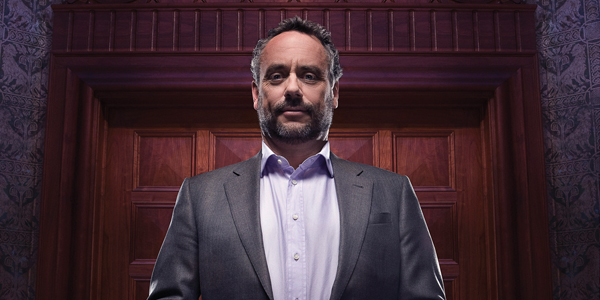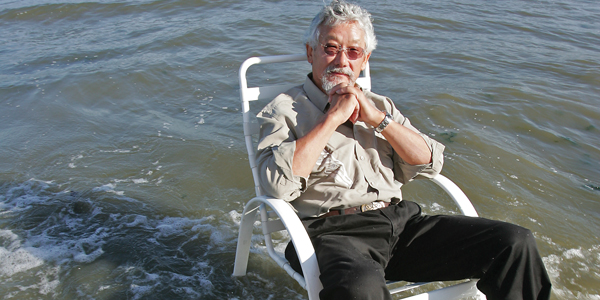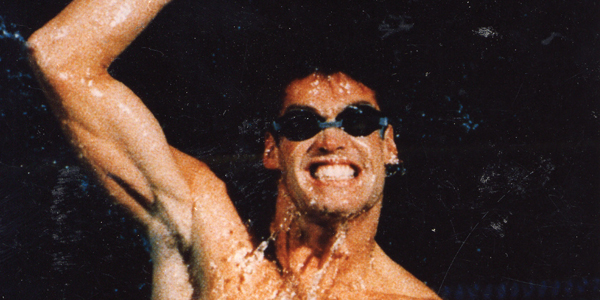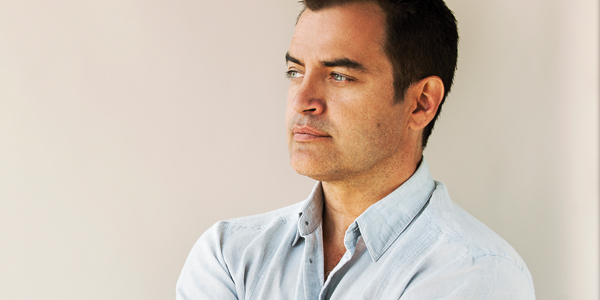 Landing at a barren grass airstrip in Northern Uganda, I’m caught off guard at the sight of a jeep full of soldiers armed with AK-47s slowly driving away. Apparently, Africans take runway clearance seriously— meandering gazelles would not have had a chance! It’s the dry season and blistering even in the shade. I’m jetlagged and thirsty, but relieved to see my driver and translator Reverend Oketta waiting. Oketta’s big smile greeting reassures me that I’m in excellent hands. And I soon discover that he is as gracious as he is tall, towering at 6’ 4’’.
Landing at a barren grass airstrip in Northern Uganda, I’m caught off guard at the sight of a jeep full of soldiers armed with AK-47s slowly driving away. Apparently, Africans take runway clearance seriously— meandering gazelles would not have had a chance! It’s the dry season and blistering even in the shade. I’m jetlagged and thirsty, but relieved to see my driver and translator Reverend Oketta waiting. Oketta’s big smile greeting reassures me that I’m in excellent hands. And I soon discover that he is as gracious as he is tall, towering at 6’ 4’’.
What follows is a long hot three-hour ‘African massage’ as we navigate crater-size potholes, jagged rocks and avoid ox-carts and cattle on a narrow dirt road to our destination: Kitgum.
This little girl from nowheresville Nova Scotia, could never have imagined this reality; I am in awe, sitting in quiet reflection as rain-starved brush and red dust slides by. I am on a journey of forgiveness.
My connection to Uganda started in February 2005, when I sent a letter to a young man in a village halfway around the world. The letter revealed an intimate and private pain that I had not shared with many back home. Instead, I chose to connect with this stranger, John Ochola living in a tiny thatched-roof hut near the Sudan border. His life was completely alien to me in every way, except one; forgiveness.
Most of John Ochola’s life was shaped by war. He was five when the rebel forces of the Lord’s Resistant Army (LRA) began to make its mark on the country. For 18 years his family and surrounding villages endured a level of ongoing violence that would be unfathomable to anyone in the west. But although shaped by the harshness of war, he endured and grew strong, completing primary school and eventually following in his father’s farming footsteps. And soon after, he found love with Grace, the woman who would become his bride.
In June 2003, a small rebel unit entered John and Grace’s village. They attacked, carving a path of pain and destruction. John was abducted. Rebels dragged him into the bush to begin their torture. Asking him if he would like a ‘short sleeve or long sleeve’ (horrific slang for the cutting off of limbs), they proceeded to chop off his ears, nose, upper lip, and half of both hands from knuckles to fingertips. Then left him to die.
Miraculously, John was found by a passerby who helped him to a hospital in Kitgum. He spent several months with Grace by his side, tending to his physical and emotional wounds.
Although John’s pain and suffering is unimaginable, what makes his story even more compelling, is a journey toward healing that took him in an impossible direction. It’s easy to understand why survivors of extreme violence, like John, aren’t able to find their way back from depression and revenge. But John is exceptional; he’s a man who smiles easily, for he has discovered a road of forgiveness.
When I first heard John’s story from a photographer friend, I was instantly struck with outrage, horror and overwhelming pity… but at the centre of this emotional kaleidoscope was something I was not expecting to feel; humiliation and shame.
In my not too distant past, a partnership of both friendship and business ended abruptly, leaving me feeling betrayed. It seemed that my trust, respect and heart was ill-placed, but rather than letting go, I chose to stay firmly stuck and wallow in the beginning stage of the grief process … anger. No one in my world talked the language of forgiveness, or explored the rewards of reconciliation.
Business partnerships—like marriages, have an unreliable survival rate. Following a break-up, the friendship component of the partnership has the same chance as in marriage—with very few ex-couples emerging as friends. My story was not an uncommon one. But as someone who made her living in the business of communication, I struggled with this relationship disconnect, not able to speak in tidy little sentences to convey the anguish I felt.
Over the years, I’ve met others who shared similar stories of living with the pain of broken relationships—brothers not speaking, daughters resenting mothers, feuding spouses and business partners. The older we get, the more cognizant we become that life doesn’t always play fair. And when you feel the assault is like intentional friendly fire—that badge of bitterness is well earned. It is a resentment that feels strangely comforting to hold on to, and in an odd way, I felt stronger with it than without.
Hearing John’s story helped bring focus to that ego-centered pain. What began as an uncomfortable mirror that made my stomach churn, would eventually be the catalyst to promote growth and the opportunity to live in a more peaceful state. I, privileged to be born in the luxury of a country where freedom is taken for granted, surrounded with great abundance and opportunity, felt sorry for herself. Because of a lost partnership? It made me feel disgracefully small.
When my friend shows me photos of John, he warns, “Deb, brace yourself. They’re pretty graphic.” I leaf through the black and white 8 x10s and put the close-up—a full-frame shot of John’s face, on top. This man’s magnificent smile speaks to me.
John’s photo remains taped on my fridge door for the next six months and I write a letter that begins a four year pen-pal relationship. Months later, I receive his reply, expressing gratitude that his story touches me, describing his life as joyful and himself as “deeply happy”.
Over time, John and I share bits and pieces of our lives with each other. Sometimes I send small gifts—a favourite silver heart locket for Grace, family photos and books. Other times, with the help of friends, send enough money to buy cows, and hand cuffs (an ingenious design of leather straps fitted to hold utensils) made by a gifted engineer of gadgets.
John in turn, sends letters and photos updating me on his life… his boy, Anyar is growing fast… Grace is pregnant with a second baby… his new cuffs allow him to use a fork and spoon, to write his own letters with a pen, and work a keyboard in a Kitgum retraining program.
His story transforms me. Looking at John’s photo—I no longer see disfigurement and feel myself move beyond being stuck. John states publically that he is willing to meet his captors with the intent to create change. His willingness to come face-to-face with his torturers, to say “I forgive you” with an open heart, is an astounding and profound story that leaves a mark on all who hear it.
I begin to realize, the problem with bitterness is that it is a double-edged sword. There’s comfort in feeling the righteousness of being wronged, but it also takes huge energy to fuel and is a depleting emotion that prevents you from being fully present in the now of life. As it is my plan to leave this planet regret free, I decide to put an end to the silence between myself and my expartner. The first step is to invite him to lunch. The second is more difficult.
As we sit across the restaurant table chatting about the latest snow storm and each other’s work, the air hangs heavy with our discomfort. Although unspoken, I sense, he too feels remorse. When small talk finally dwindles to an awkward silence, I slide John’s photo across the table, and with renewed momentum share his story and add, “I forgive you for what happened.”
Without making eye contact or asking any questions about the valorous story he just heard, he quickly tucks the photo into his briefcase and maneuvers the conversation back to the safety of work. And there we stay. Even though the remainder of our lunch focuses only on the trivial, unimportant things in life, I know that something powerful and extraordinary has just happened. I leave the restaurant that day energized and in a renewed state of connectedness.
Sometime later I receive a letter sharing the good news that Grace has given birth to a baby girl. John writes, “We have a family of four now; recently blessed with a baby girl. We gave her your name Debby. Her other name is Lamaro. In our language Lamaro means ‘loving’. Her full name is Debby Lamaro. Excuse us for ‘stealing’ your name.” Yes, John and I had a very special connection. I have to meet this man face-to-face.
As Oketta instructs the driver to pull down a winding road dotted with rondavels, my heart pounds, and I try to imagine how this village looked 18 years ago when John was a young boy. I suspect little has changed. Fortunately, it is now February 2008 and the years of terror and bloodshed have subsided, making it safer for NGOs to do their work and travellers like myself to visit this remote area.
Our car comes to a stop between two small huts and I jump out. I recognize Grace, with three children leading the way and little Debby in front. Unlike most African children I’ve met travelling through Tanzania and Uganda who cautiously approach ‘Mzungus’ (white people), Debby shows absolutely no fear. She runs to me with open arms. I scoop this plump bare-bottomed child up and she holds on tight. Later when older brother Anyar and baby Samuel dare to come closer, she swats them away.
Grace is appropriately named; she is grac-ious with a sweetness and lovely way of laughing when she speaks. No wonder she caught John’s eye. John walks toward me, his face radiant as he embraces me with an ease uncharacteristic of a first-time meeting.
We spend the afternoon exploring each other’s worlds. He shares his love for soccer, riding his bicycle, and his dreams that when his children grow, they will go beyond primary school and if all goes well, he will one day build a brick house with a floor for his family.
Debby is a feisty, intelligent, wide-eye spark who laughs constantly and loves to have her photo taken. Like a fashion model on a catwalk, she prances and smiles for my camera, then postures likes she’s the art director. The bond is instant, and over the next two days, this spirited three-year-old refuses to leave my side. She has an unsettling way of placing her tiny hands on my cheeks, moving her face close to hold my gaze—just inches away—as if to look deep into my soul. My heart is hers.
After a late lunch of Grace’s rice and chicken, we sit outside of John’s home as he shares his story of courage, endurance and forgiveness. In a quiet, hushed voice he slowly describes the attack by murderous brutes that changed his life forever.
Without even the hint of bitterness or despair, he looks into my eyes and in a humble whisper, says, “I’ve been told that I have become an inspiration to the people in my village, as they see that I have chosen to forgive.” Then turning to the children playing beside us he smiles, “I was left to die, but I survived and I am here now with my family.”
I smile in return. This unassuming man, sitting on the dirt-swept yard in front of his grass thatched hut, has no idea how far his wave of forgiveness has radiated around the world.





